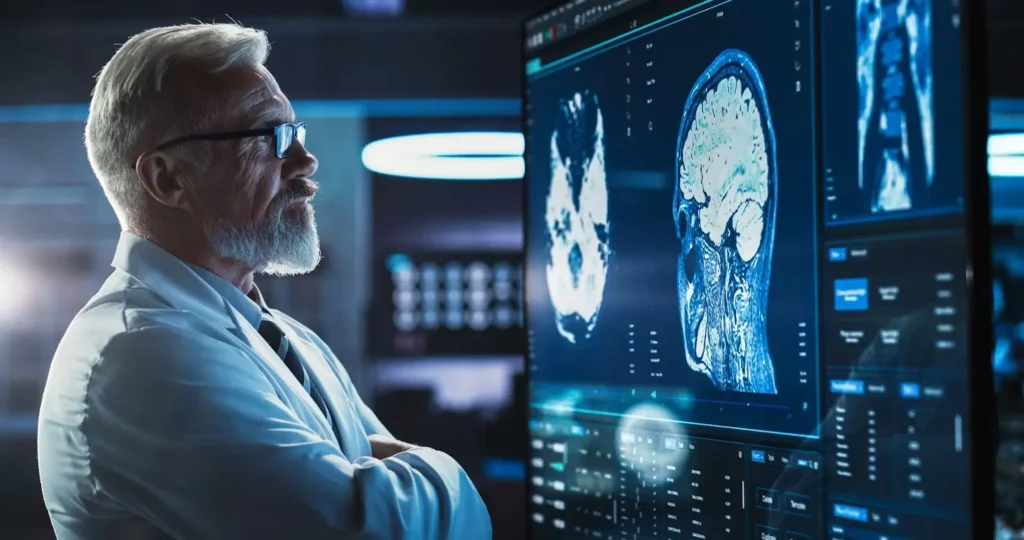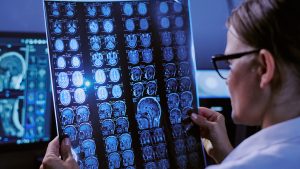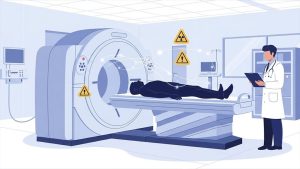Magnetic Resonance Imaging (MRI) is a powerful tool in the medical field, especially in diagnosing neurological conditions.
This article explores the significance of MRI, its various types, and its crucial role in identifying and managing neurological diseases.
Importance of Accurate Diagnosis in Neurological Conditions
Accurate diagnosis is fundamental in effectively treating neurological conditions. Misdiagnoses can lead to inappropriate treatments that may not only be ineffective but potentially harmful.
MRI technology offers precise imaging that helps healthcare professionals pinpoint the exact nature of neurological issues, leading to better patient outcomes.
What is MRI and How Does it Work?
MRI is a non-invasive imaging technology that uses strong magnetic fields and radio waves to generate detailed images of the organs and tissues within the body. Unlike X-rays or CT scans, MRI does not use ionizing radiation, making it a safer option for patients.
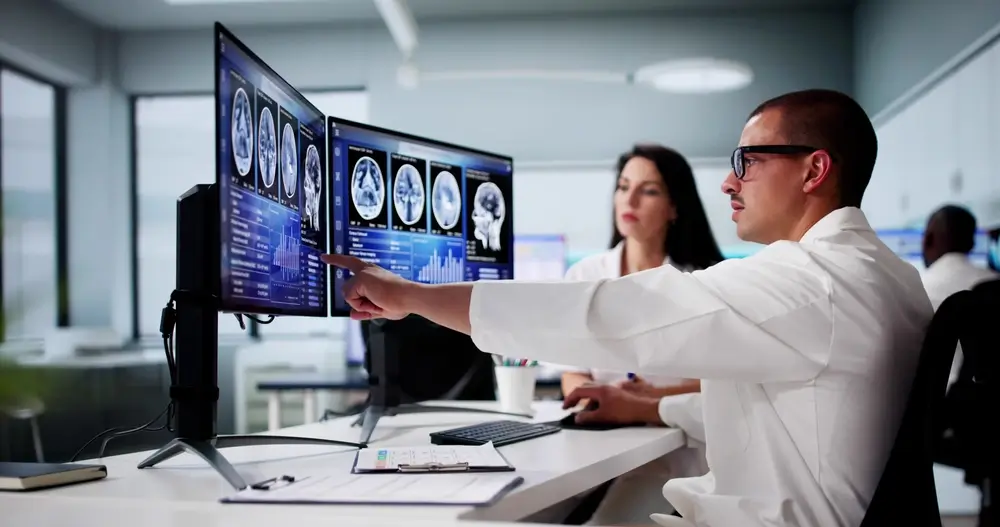
Types of MRI Scans Relevant to Neurology
Here are some of its types:
Functional MRI (fMRI)
Functional MRI measures and maps the brain’s activity by detecting changes in blood flow. It is particularly useful in understanding brain function and in planning surgeries involving the brain.
Diffusion Tensor Imaging (DTI)
DTI is a type of MRI that maps the diffusion process of molecules, mainly water, in biological tissues. It is particularly valuable in examining white matter tracts in the brain and diagnosing conditions like multiple sclerosis and traumatic brain injuries.
MR Spectroscopy
MR Spectroscopy analyzes the chemical composition of tissues, providing metabolic information that MRI images alone cannot. This technique is especially useful for identifying brain tumors and other metabolic disorders of the brain.
MRI and Neurological Conditions
MRI has revolutionized the way neurological conditions are diagnosed and managed. Here’s a detailed exploration of its application in various neurological diseases:
Brain Tumors
MRI is essential in detecting and visualizing brain tumors. It helps in determining the size, location, and type of the tumor, which is crucial for effective treatment planning.
Stroke
Rapid diagnosis is critical for stroke management. MRI can quickly identify and differentiate between ischemic and hemorrhagic strokes, allowing for timely and appropriate interventions.
Neurodegenerative Disorders
Conditions like Alzheimer’s and Parkinson’s diseases can be difficult to diagnose early. MRI provides detailed images that can identify early signs of these diseases, potentially slowing progression through early intervention.
Multiple Sclerosis
MRI is the gold standard for diagnosing multiple sclerosis, as it can reveal lesions in the brain and spinal cord that are indicative of the disease.
Epilepsy
MRI helps in identifying structural abnormalities in the brain that may be causing seizures, assisting in the diagnosis and surgical planning for epilepsy patients.
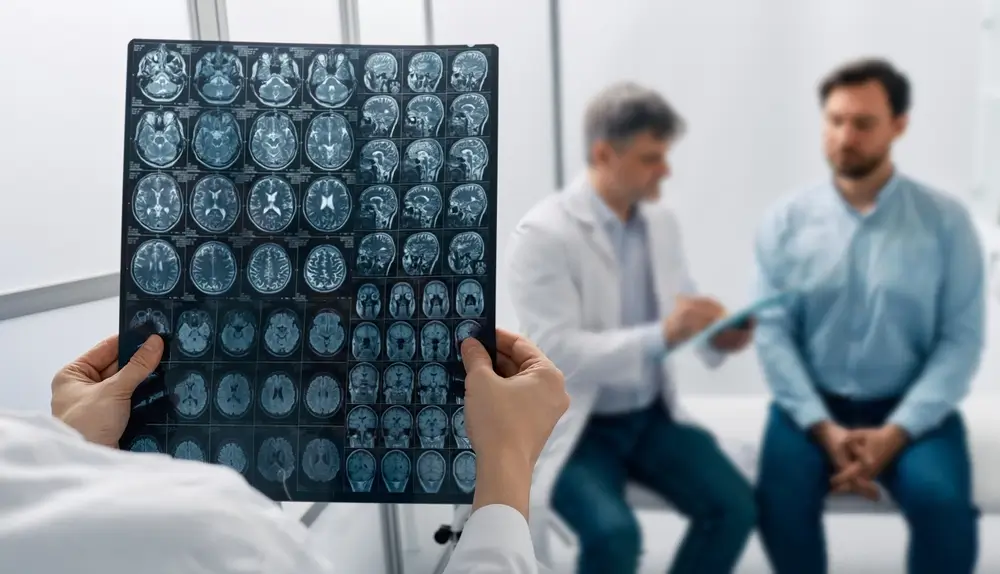
What Patients Can Expect During an MRI
Understanding what to expect can alleviate anxiety associated with undergoing an MRI scan. Here’s what patients need to know:
Preparing for an MRI
Patients are usually advised to avoid wearing metal objects and may need to fast for a few hours before the scan. Detailed medical history and any specific instructions will be provided by the healthcare team.
The MRI Process
During the scan, the patient lies on a movable table that slides into the MRI machine. The process is painless but can be noisy; earplugs or headphones may be provided to reduce discomfort. The technician will communicate with the patient throughout the procedure to ensure they are comfortable.
After the MRI: What Comes Next
Post-scan, the patient can usually resume normal activities immediately. The radiologist will analyze the MRI images and send a report to the patient’s referring physician, who will discuss the results and next steps.
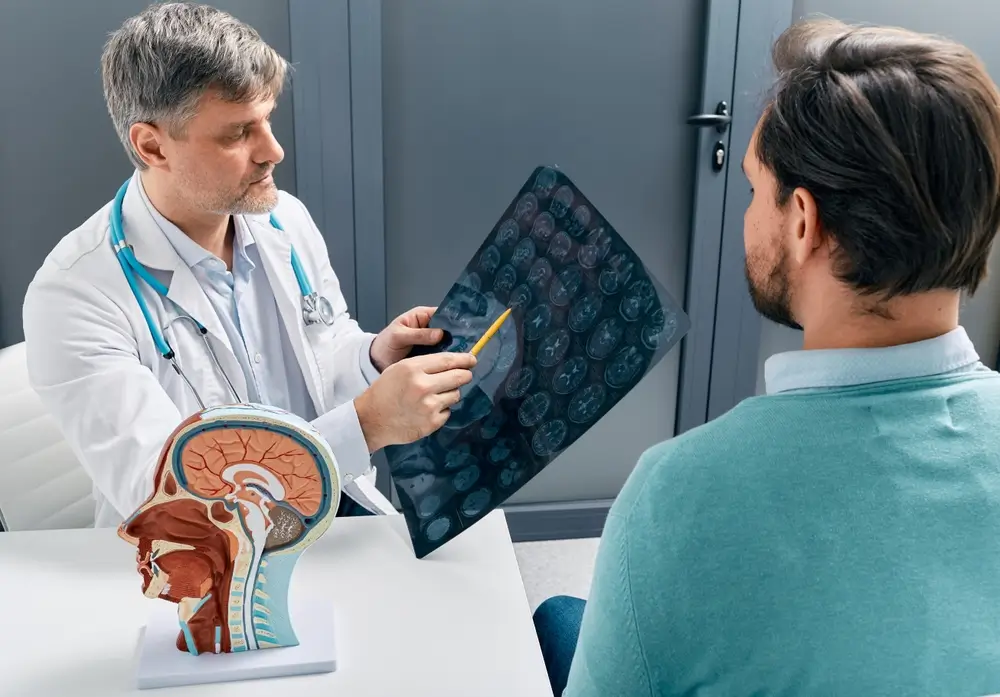
Advantages of MRI in Neurological Diagnosis
MRI has several advantages that make it an indispensable tool in neurological diagnosis:
Non-Invasive and Safe
MRI does not use ionizing radiation, making it a safer option for patients, particularly those who require multiple scans.
High-Resolution Images
MRI provides highly detailed images, allowing for the detection of minute abnormalities in the brain and spinal cord.
Versatility in Imaging Different Conditions
MRI can be tailored to various diagnostic needs, making it versatile in evaluating a wide range of neurological conditions.
The Future of Neurological Diagnostic Imaging
MRI technology continues to evolve, offering even more precise and comprehensive tools for diagnosing neurological conditions.
As advancements continue, institutions like One Step Diagnostic are at the forefront, providing state-of-the-art imaging services to ensure accurate diagnoses and better patient outcomes.Choose One Step Diagnostic for your MRI needs, where cutting-edge technology meets compassionate care. Experience the difference in accurate, reliable diagnostic imaging.

